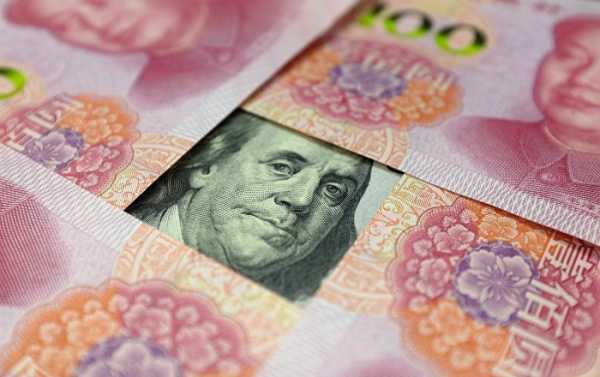
According to research released by HSBC, US export companies see China as a priority market. Research data shows that despite the US authorities’ harsh rhetoric, more than half of US firms that export products overseas plan to increase their presence on the Chinese market.
In addition, China is still a priority market for many countries that have traditionally been American allies.
A total of 1,205 companies participated in the HSBC research study. Around 40% of US companies said that China is the main market for their plans to increase sales of their products and services over the next few years. While due to some fundamental differences between China and the US regarding trade and industrial policy issues, Washington didn’t send any senior official to the first China International Import Expo, the American business community clearly had other ideas. The US ranked third with 500 products on display at more than 130 US pavilions at the Expo.
China is important to Washington’s allies as well. About 39% of firms from the UAE interviewed by HSBC also said China is their priority market. The same is true for the Asia-Pacific region as a whole, with 91% of Malaysian companies saying they cannot imagine how they will operate if they leave the Chinese market. Even in Australia, a traditional supporter of the United States on many foreign policy issues, 84% of companies claim China to be the main source of their business revenue.
This is hardly surprising as China’s economy has grown by 225 times over the past 40 years with the number of people living below the poverty line decreasing by 500 million, or 1.5 times the number of total US residents. China’s consumer society is rapidly forming along with the middle class.
Naturally, this rapidly growing high-capacity market is very attractive to both domestic and foreign businesses. But the question is what happens in the event of a conflict of interest between the state and the business community? Can we expect any changes in US policies? Zhou Rong, a senior researcher at the Chongyang Financial Research Institute of the Renmin University of China, believes that it’s not the time to talk about any changes in US policy toward China. But as soon as the dissatisfaction of the American business community reaches a critical point, Washington will have to give in whether it likes it or not.
“I believe the Chinese market won’t be invisible to US companies in the future. But we should note that it’s not only the Republicans who pursue the current hostile policy toward China; the Democrats are also adopting a containment policy against the Asian giant. So, we aren’t going to see any change in Trump’s foreign policies, as the two major parties in the US aren’t fundamentally different in their approach towards China. Actually, Trump’s containment measures against China don’t hurt the American firms doing business with the Asian country that much. However, the more damage the US businesses suffer, the more dissatisfaction we are going to see on the part of the American business community; we haven’t hit the ceiling yet. However, as soon as that happens and US businesses realize the real reason for their losses, we may expect some loosening of Washington’s policy toward China; Trump will have to do that, at least there’s such a possibility”.
Australia has already been forced to navigate between its political allies and major economic partners. On the one hand, to prove their loyalty to the United States, the Australian government has barred Huawei and other Chinese companies from building the country’s 5G network.
On the other, according to Australian Foreign Minister Marise Payne, the country very much welcomes Chinese investment. The thing is that China is vital to the Australian economy. According to KPMG, 36% of the country’s exports are to China; moreover, China is a major supplier of import goods to Australia. In addition, there’s a free trade agreement between the two states.
There is a similar situation in many Asia Pacific countries. According to China’s Ministry of Commerce, in 2017, the total bilateral investment in China and ASEAN reached $185 billion. In 2020, with the help of the free trade agreement between China and ASEAN, the bilateral trade volume is expected to reach $1 trillion.
Views and opinions expressed in the article are those of Zhou Rong and do not necessarily reflect those of Sputnik
Sourse: sputniknews.com






